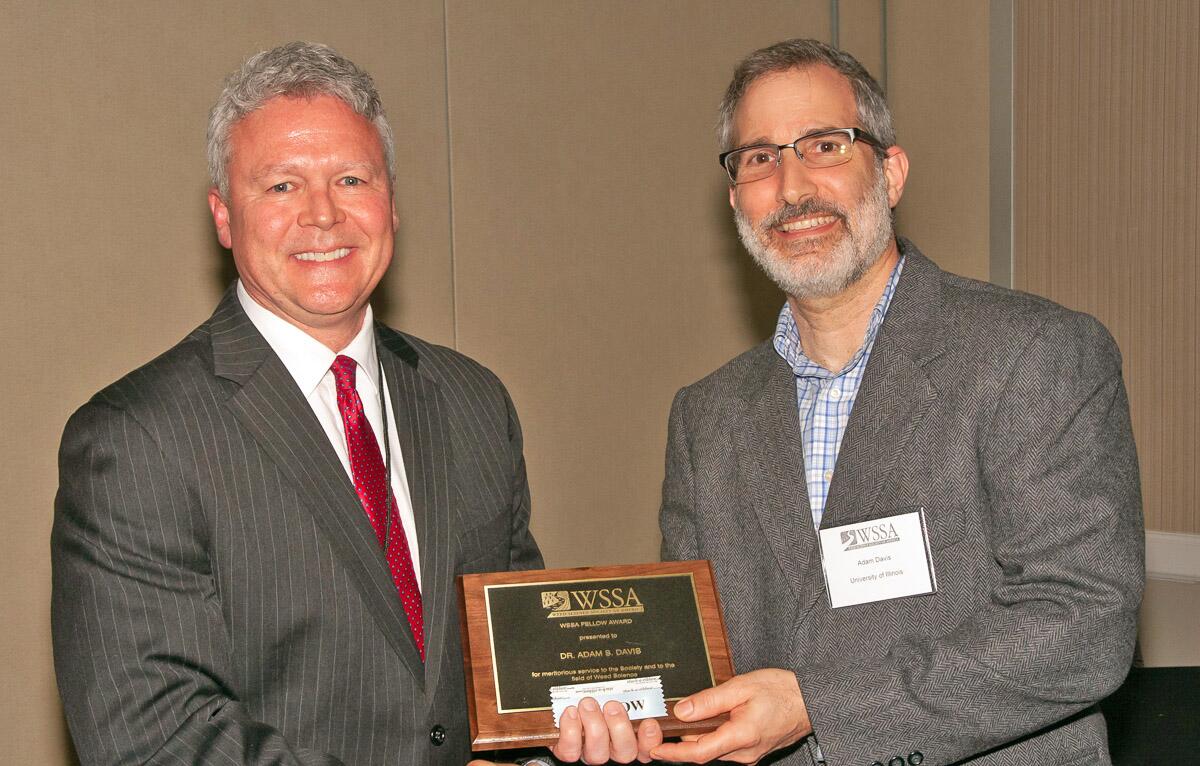Davis recognized for contributions to weed science

URBANA, Ill. – The Weed Science Society of America last week recognized Adam Davis, head and professor in the Department of Crop Sciences at the University of Illinois, with a Fellow award, the society’s highest honor. The award recognizes Davis’s outstanding contributions to the field of weed science, particularly his use of ecological and quantitative principles to inform effective weed management.
Trained in quantitative plant ecology and crop science, Davis has authored and co-authored more than 130 scholarly articles on topics ranging from weed seedbank dynamics to biofuel-crop invasion potential to cooperative weed management models. He has won numerous awards, including WSSA’s early career outstanding scientist award in 2011.
“Adam’s ecological approach to the discipline and his extraordinary command of quantitative analytical approaches to data and modeling are some of the reasons I nominated him for this award,” says agroecologist David Mortensen of the University of New Hampshire. “I do not know a weed scientist or more broadly, a plant ecologist, who has the depth and breadth of quantitative rigor that Adam Davis possesses. What’s more, he’s incredibly willing to share his knowledge.”
Davis views weed management in a whole-system context, never focusing on a single control modality as the silver bullet that will stop the spread of agricultural weeds. Instead, he advocates for a “middle way” that eases producers’ reliance on herbicides while achieving even better control through crop rotation, harvest weed seed control, and weed suppressive cultivars.
“Adam’s contributions in weed ecology are numerous, impactful, and will benefit crop research for years to come,” says USDA-ARS scientist and research collaborator Martin Williams. “Moreover, Adam provides valuable leadership and vision. He is a gifted innovator.”
Davis received the award as part of the organization’s annual meeting, held this year in New Orleans, Louisiana. Davis was joined by Dallas Peterson of Kansas State University in receiving the Fellow award. Additional honorees received awards in multiple categories; a full list is available in a news release from WSSA.
“This year’s honorees are actively spearheading innovations and advancing weed science through their research, teaching, publishing and outreach,” says Larry Steckel, 2019 annual meeting chair and incoming president of WSSA.
The Weed Science Society of America promotes research, education, and awareness of weeds in managed and natural ecosystems, and publishes three scholarly journals, as well as additional reference publications.